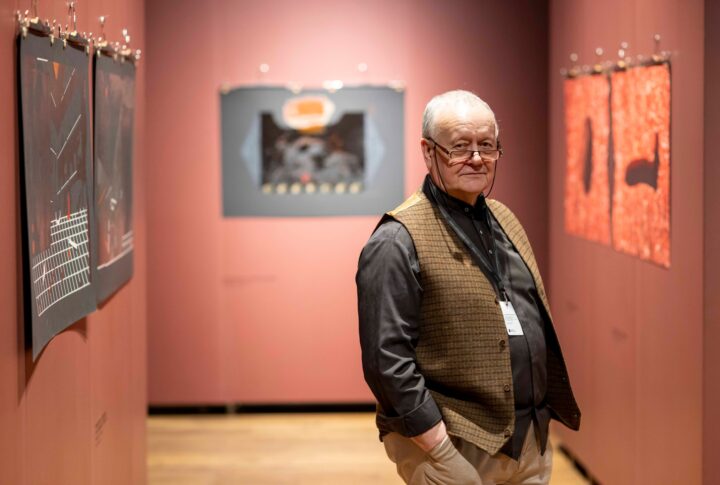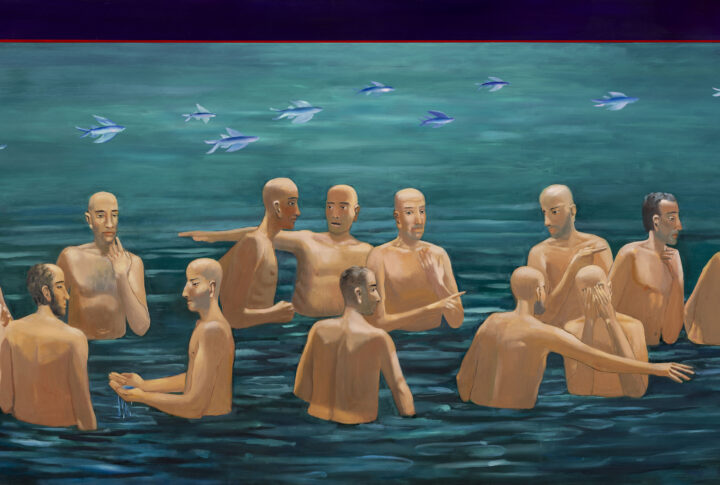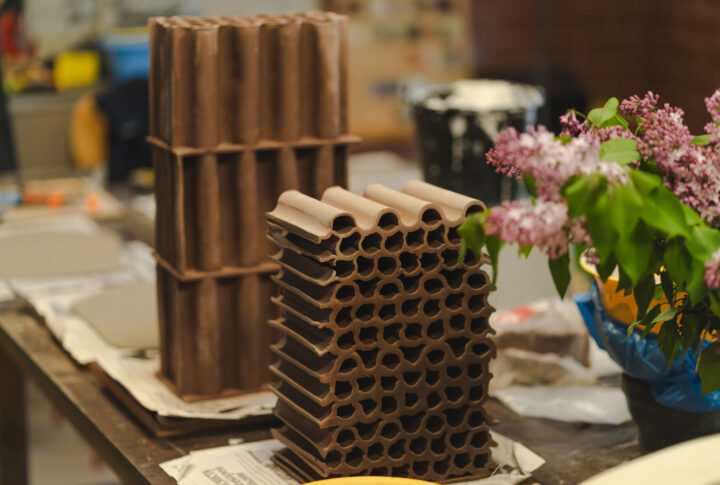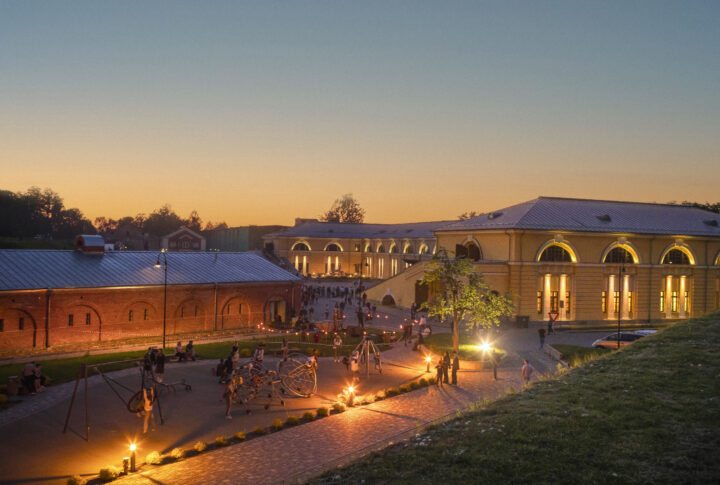Speechless: New Visual Semantics
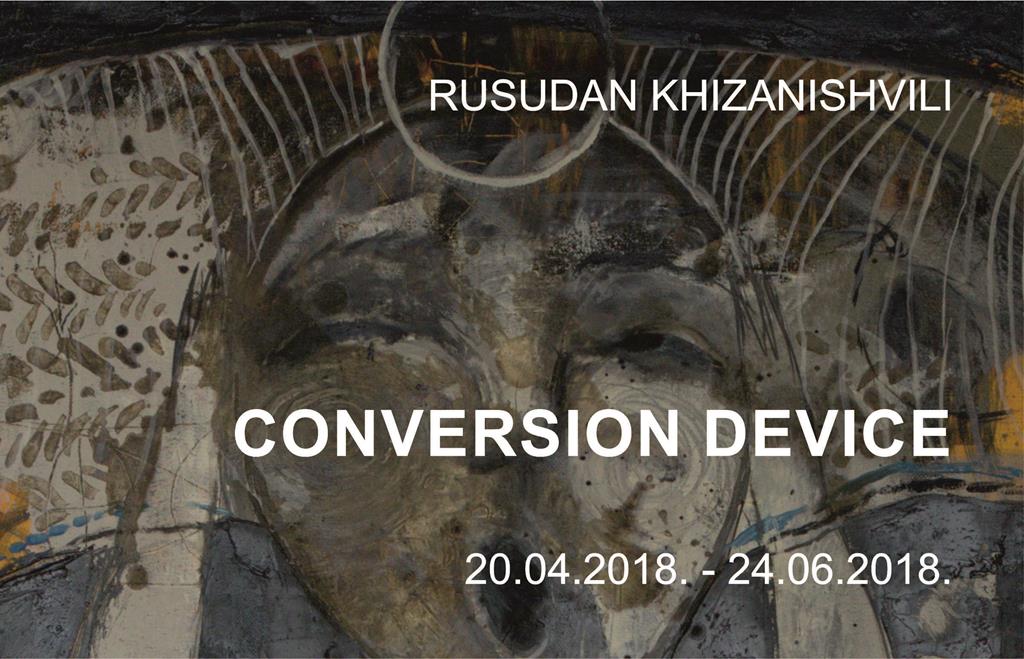
This exhibition covers Rusudan’s work for 2017 through 2018. She has been painting since she consciously came into this world. Her canvases are colouristically enlivened depictions of her life, manifestation of her dreams, emanation of her thoughts and footprints of her raw, jarring emotions. Rusudan has participated in 2015 Venice Biennale and numerous personal and group exhibitions in the West. She lives and works in Georgia.
Her honest works created in a grey studio within the confines of a grey city are all neo-expressionist expressions of her inner unrest. She runs away from ethnic elements and creates forms and colour schemes that are utterly Western in their approach to plasticity and subject matter. There are two sides to the global story that Rusudan’s neo-expressionist paintings in this exhibition highlight, and they both address existential concerns with the reality of subjective experience.
First is a more metaphysical, cerebral approach to the complex and painful ongoing social transformation. We all witness total digitalization of human society, our smartphones have already become our extra palms, but this disconnect from physical reality (inevitably reconstructed into pixels) produces an equal longing towards nature, desire to reunite with it, to reconquer our animal and plant selves. In her series “Into the Nature” (with “Conversion Device” being the central painting), Rusudan explores this unique process. Flora is merging into fauna and, through blurring of these organic lines, a human being also becomes a part of them. In her vision, humans become integral parts of nature on a deeper biological level, they become a new species by going back to their roots. In the day-to-day reality of total information flow, we are drawn by the incomprehensible and the strange, and what could be stranger then nature? It is a metaphysical creation of a parallel world, which becomes intelligible to others without words.
Another, more dangerous facet of this new loss of words is the by-product of what Spanish sociologist Manuel Castells Oliván termed information society, when “activities are organized around electronically processed information networks.” [1] Network society creates a human condition when we are becoming so numbed by the blandness of information that surrounds us that we are likely to switch to communication without words, also because it becomes the natural consequence of our busy day-to-day flow. Words become unnecessary as once verbally conveyed messages become visual. Different, naturalistic semantics are becoming possible. Words, which by their very nature create boundaries, become obsolete. An image is a message, and an image is life. However, this process, while giving us new creative impulses, is also a process of loss. What is being lost right now? Depth of expressed feelings and intellectual values through an overwhelming presence of cliché and banality, because images alone do not convey our shared human condition.
Much like walls and planets of Ray Bradbury’s friendly, mysterious universes, Rusudan’s canvases read our thoughts and help us see what we presently see in our mind’s eye, be it hatred, transformation, pity or rebirth. Her canvases are playing with us, discerning our thoughts and transforming themselves accordingly. Rusudan’s goal is to distance rather than to enchant, to make us step away rather than approach, to observe rather than absorb. It is the dawn of a new reality, and Rusudan invites you to become its participant.
- “Conversation with Manuel Castells, Globetrotter.berkeley.edu. Retrieved2017-8-31


